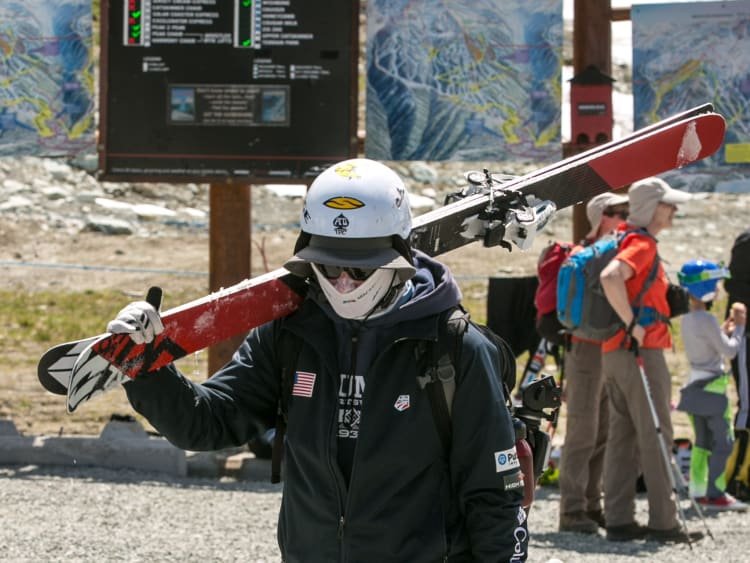Whistler summer ski camps, a cornerstone for training top freeskiers and snowboarders, have officially come to an end. The iconic high-glacier slopes of Whistler Blackcomb in British Columbia will no longer host summer snow camps, marking the close of a decades-long tradition.
Momentum Camps, the long-running summer program at Whistler Blackcomb, announced earlier in March 2025 that summer ski camps would be canceled indefinitely. The news shocked the skiing and snowboarding communities, which have relied on the mountain’s reliable summer snow for elite training and development.
On May 21, 2025, Whistler Blackcomb provided further details about the difficult decision. The resort stated that summer camps on the Horstman Glacier could not continue due to changing glacier conditions.
“Whistler Blackcomb is unable to continue hosting summer camps on the Horstman Glacier for the foreseeable future. This decision was not made lightly – we know these camps, and this experience, have a long history at our resort. Unfortunately, the summer conditions on the glacier related to snowpack and glacier melt prevent the safe operation of summer camps,” the resort said.
The closure reflects a broader challenge facing glaciers worldwide. Warmer temperatures and melting snow have made it increasingly difficult to maintain safe conditions for skiing and snowboarding during the summer months. Safety concerns and environmental changes have forced the resort to reconsider its long-standing summer programs.
For decades, Whistler Blackcomb’s summer camps have been a key destination for aspiring athletes. Olympians and world-class competitors traveled to the resort to train on the mountain’s glacial slopes during the off-season. The camps offered a rare opportunity for summer snow practice, helping athletes maintain competitive form year-round.
Many in the skiing and snowboarding communities have expressed sadness over the loss. The camps were known not only for high-level training but also for their culture, camaraderie, and unique summer snow experience. Trainers, coaches, and athletes praised the program as essential to the sport’s development.
While Whistler Blackcomb’s decision ends this chapter, the resort emphasized that safety remains the priority. Glacier melt and changing snow conditions have made summer training increasingly risky. The resort plans to continue monitoring the glacier, but at present, no alternative plans for summer camps have been announced.
The announcement also highlights how climate change is affecting winter sports worldwide. Glaciers that once offered consistent summer snow are now less reliable, forcing many ski destinations to adapt or scale back seasonal programs. Experts say this trend may continue, impacting other high-altitude ski areas.
Despite the closure, Whistler Blackcomb remains a major hub for winter skiing and snowboarding. Regular winter programs and camps will continue as usual, providing opportunities for athletes and visitors to enjoy the resort’s world-class slopes.
For now, the Horstman Glacier’s summer ski tradition has ended. The decision marks a turning point in the sport, reminding athletes and fans that even long-standing institutions are not immune to environmental challenges. As training programs adapt, the skiing and snowboarding world will look for new solutions to maintain elite summer training opportunities elsewhere.

